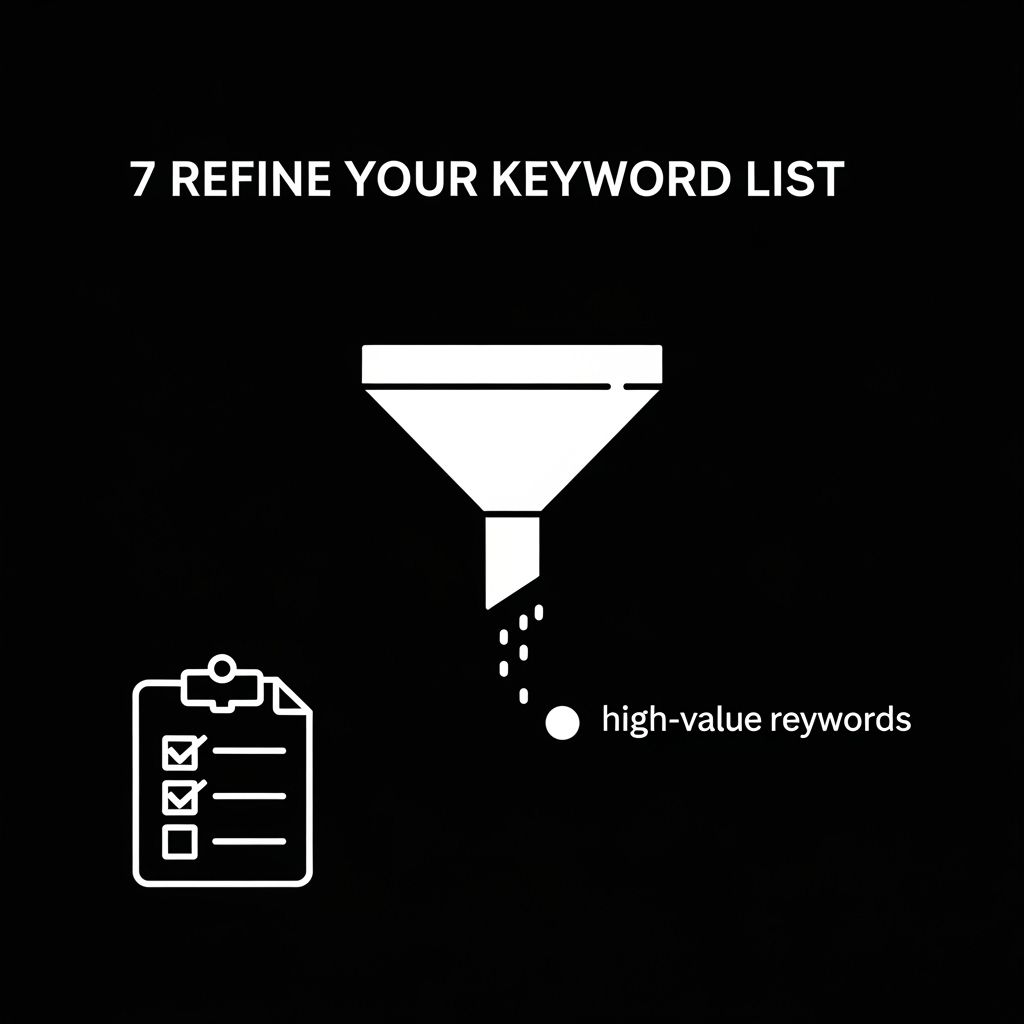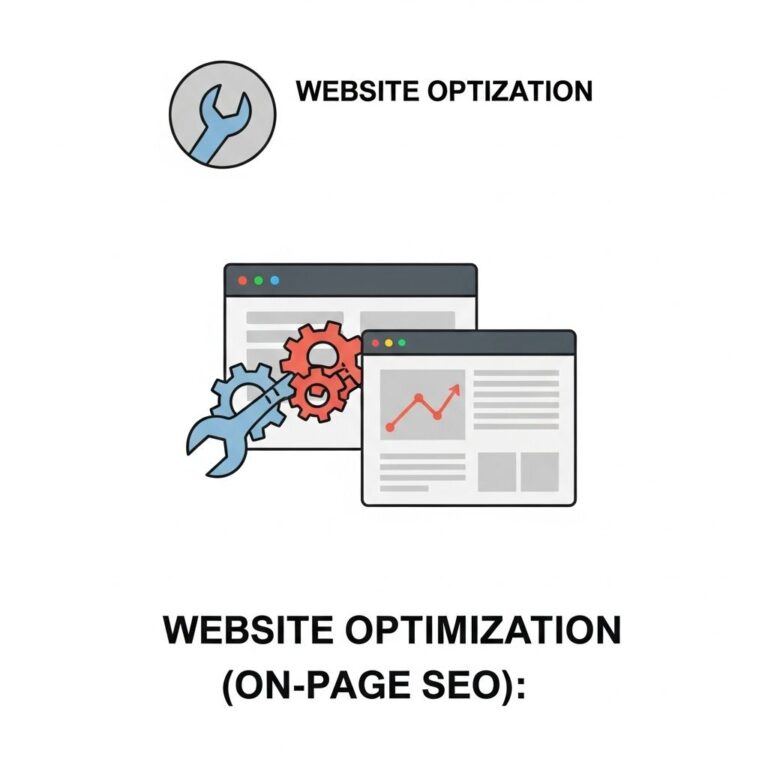In the fast-evolving world of digital marketing, the ability to effectively identify high-value keywords can make or break your online strategy. With search engines serving as gateways to your business, understanding how to find the right keywords can significantly influence your site’s traffic and conversion rates. This article delves into the methodologies, tools, and strategies you can employ to uncover high-value keywords that not only drive traffic but also resonate with your target audience.
Table of Contents
Understanding the Basics of Keyword Research
Keyword research is the process of discovering and analyzing the search terms that people enter into search engines. This is a crucial step in optimizing your content and improving your website’s visibility.
Why Keyword Research Matters
Here are some reasons why keyword research should be at the forefront of your digital marketing strategy:
- Enhances SEO: Proper keyword targeting can boost your rankings on search engine results pages (SERPs).
- Informs Content Strategy: Knowing what users search for guides the topics and types of content you should create.
- Competitive Advantage: Identifying what keywords competitors are targeting can help you find gaps in the market.
Key Metrics to Evaluate Keywords
When searching for high-value keywords, consider the following metrics to ensure you are targeting effectively:
| Metric | Description |
|---|---|
| Search Volume | The number of searches a keyword receives in a specific timeframe, typically measured monthly. |
| Keyword Difficulty | A metric indicating how hard it would be to rank for that keyword based on competitors. |
| CPC (Cost Per Click) | The average cost of each click for a keyword in paid search advertising. |
| Click-Through Rate (CTR) | The percentage of users who click on a link after seeing it in search results. |
Tools for Finding High-Value Keywords
Utilizing the right tools can streamline your keyword research process. Here are some popular tools to consider:
1. Google Keyword Planner
Google’s own tool helps users find keywords and see how a list of keywords might perform. Here’s how you can use it:
- Create a Google Ads account.
- Navigate to the Keyword Planner tool.
- Enter your product or service-related terms to get keyword ideas.
2. SEMrush
SEMrush offers a comprehensive keyword analysis tool that allows you to view keyword metrics, competitive analysis, and even SERP features. It’s particularly useful for tracking keyword performance over time.
3. Ahrefs
Ahrefs boasts a robust database and provides insights into keyword difficulty and search volume. The Content Explorer feature allows you to find popular content based on specific keywords.
Conducting Competitive Analysis
Understanding what keywords your competitors are targeting can provide invaluable insights. Here’s how to conduct a competitive analysis:
Steps for Competitive Keyword Analysis
- Identify Your Competitors: List out the top competitors in your niche.
- Analyze Their Content: Look at the keywords they are ranking for.
- Use Tools: Utilize tools like SEMrush or Ahrefs to see their organic keywords and paid keywords.
Finding Gaps and Opportunities
As you analyze competitor keywords, look for gaps where you can compete effectively. Consider targeting long-tail keywords or niche-specific phrases that may have lower competition.
Implementing Keyword Strategies
Once you’ve identified high-value keywords, it’s time to implement them into your content. Here are several strategies to consider:
1. On-Page SEO Optimization
Incorporate your chosen keywords into key on-page elements:
- Title Tags
- Meta Descriptions
- Headings (H1, H2, H3)
- Image Alt Text
- URL Slug
2. Content Creation
Create high-quality, engaging content that naturally incorporates the targeted keywords. Consider the following content types:
- Blog Posts
- How-to Guides
- Infographics
- Videos
3. Regular Monitoring and Adjustments
Keyword performance can change over time. Regularly monitor your ranking and adjust your strategies as needed. Use analytics tools to track:
- Traffic sources
- Bounce rate
- Conversion rates
Advanced Techniques for Keyword Research
If you are already familiar with basic keyword research, consider these advanced techniques to enhance your strategy:
1. Semantic Keyword Research
Focus on related terms and phrases (semantic keywords) that enhance the main keyword contextually. This can help in ranking for more diverse queries.
2. Utilize Google’s ‘People Also Ask’ Feature
When you search for a keyword in Google, check the ‘People Also Ask’ section for additional related queries that can provide inspiration for content.
3. Analyze User Intent
Understanding the intent behind a search (informational, navigational, transactional) can help tailor your content to better meet user needs.
Conclusion
Finding high-value keywords is a complex yet rewarding part of digital marketing. By utilizing the right tools, conducting thorough competitive analysis, and implementing effective strategies, you can enhance your SEO efforts and achieve substantial growth in traffic and conversions. Remember, keyword research is not a one-time task but an ongoing process that requires regular adjustments and fine-tuning. Embrace the journey of discovering and utilizing high-value keywords, and watch your online presence thrive!
FAQ
What are high-value keywords?
High-value keywords are search terms that have a high search volume and low competition, making them ideal for driving targeted traffic to your website.
Why is keyword research important?
Keyword research is crucial because it helps identify what your target audience is searching for, allowing you to create content that meets their needs and improves your site’s visibility on search engines.
What tools can I use to find high-value keywords?
You can use tools like Google Keyword Planner, SEMrush, Ahrefs, and Ubersuggest to discover high-value keywords relevant to your niche.
How do I determine the competition for a keyword?
To determine keyword competition, analyze the top-ranking pages for that keyword, check their domain authority, and evaluate the quality of their content using SEO tools.
What is long-tail keyword strategy?
A long-tail keyword strategy involves targeting specific, longer phrases that are less competitive but can attract highly relevant traffic, often leading to better conversion rates.
How often should I update my keyword strategy?
It’s advisable to review and update your keyword strategy regularly, at least every few months, to adapt to changing trends and audience interests.









